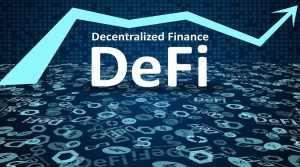Introduction to Smart Contracts
Smart contracts are self-executing computer programs that automatically execute the terms of an agreement when certain conditions are met. In the context of DeFi, smart contracts are used to automate financial transactions, including lending, borrowing, and trading.
Smart contracts operate on the blockchain, which allows for greater transparency, security, and accessibility than traditional financial systems. By eliminating intermediaries and enabling peer-to-peer transactions, smart contracts offer a more efficient and cost-effective approach to financial transactions.
Preventing DeFi Hacks with Smart Contracts
Smart contracts can also play a critical role in preventing DeFi hacks and other security breaches. By enabling automated and secure transactions, smart contracts can help to reduce the risk of human error, fraud, and manipulation.
One key strategy for preventing DeFi hacks with smart contracts is to conduct thorough security audits and assessments of the smart contracts underlying DeFi protocols. These assessments can help to identify vulnerabilities and risks in smart contracts, allowing developers and users to address these risks before they are exploited by attackers.
Moreover, smart contracts can also incorporate risk management and security features, such as multi-signature authorization and time locks, that can help to prevent unauthorized transactions and limit the impact of security breaches.
Challenges and Limitations of Smart Contracts

However, smart contracts also pose several challenges and limitations for the DeFi industry. One of the key challenges is the need for effective governance and risk management practices that can ensure the security and integrity of smart contracts.
Moreover, the complexity of smart contracts and the lack of standardized programming languages can make it challenging to identify and address vulnerabilities and risks. This can lead to delays and disruptions in the development and deployment of DeFi protocols, as well as increased costs and other challenges for developers and users.
Best Practices for Smart Contract Security
Effective smart contract security is critical for preventing DeFi hacks and other security breaches. To ensure the security and integrity of smart contracts, developers and users should follow several best practices:
- Conduct regular security assessments and audits to identify vulnerabilities and risks in smart contracts.
- Use standardized programming languages and libraries to ensure the reliability and security of smart contracts.
- Implement multi-signature authorization and time locks to prevent unauthorized transactions and limit the impact of security breaches.
- Use open-source code and community-driven governance to promote transparency, accountability, and collaboration within the DeFi ecosystem.
- Continuously monitor and update smart contracts to address emerging risks and vulnerabilities.
The Future of Smart Contracts in DeFi
DeFi has emerged as a revolutionary technology that is changing the way we think about finance. One of the key components that make DeFi possible is the use of smart contracts. These self-executing programs automate the execution of agreements between parties, allowing for trustless transactions without the need for intermediaries. Smart contracts have been instrumental in creating a wide range of financial products and services in DeFi, including decentralized exchanges, lending platforms, and prediction markets.
The future of DeFi is closely tied to the development and implementation of smart contracts. As the technology continues to evolve, smart contracts will become even more integral to DeFi’s growth and expansion. One of the most significant advantages of smart contracts in DeFi is their ability to create more complex financial products and services. For example, with the help of smart contracts, it is possible to create options, derivatives, and other sophisticated financial instruments that were previously only available to institutional investors.
Advancements in smart contract technology will lead to increased efficiency, reduced costs, and enhanced security in DeFi. New developments in the field of smart contracts such as Layer-2 scaling solutions, cross-chain interoperability, and improved programming languages will provide more opportunities for developers to create innovative DeFi applications.
However, challenges such as scalability and interoperability must be addressed for smart contracts to reach their full potential. The Ethereum network, which is currently the most popular platform for building smart contracts, has faced issues with high transaction fees and network congestion. Solutions such as Ethereum 2.0 and Layer-2 scaling solutions like Arbitrum and Optimism are being developed to address these challenges.
However, the challenges and risks associated with smart contracts highlight the need for effective governance and risk management practices within the DeFi ecosystem. By working together to address these challenges and leverage the potential of smart contracts, the DeFi ecosystem can continue to grow and evolve while maintaining the security and integrity of the ecosystem.
DeFi Hacks and Lessons Learned
Despite the potential of smart contracts and other security measures, DeFi hacks and security breaches remain a significant challenge for the industry. In recent years, several high-profile DeFi hacks have resulted in the loss of millions of dollars in user funds.
These hacks have highlighted the need for ongoing innovation and collaboration within the DeFi ecosystem to address emerging risks and vulnerabilities. Moreover, they have underscored the importance of effective risk management and governance practices, as well as the need for regulatory and legal frameworks that can promote the security and integrity of the DeFi ecosystem.
The Role of Insurance in DeFi
One potential solution to the challenges and risks associated with DeFi hacks is the use of insurance. DeFi insurance protocols can provide users with coverage for losses due to security breaches or other risks, helping to mitigate the impact of such incidents on the ecosystem.
Moreover, the use of insurance can also help to promote greater transparency, accountability, and risk management within the DeFi ecosystem. By providing users with greater confidence in the security and reliability of DeFi protocols, insurance can help to promote the continued growth and adoption of DeFi.
Regulatory and Legal Considerations for DeFi
As the DeFi ecosystem continues to grow and evolve, the role of regulation and legal frameworks is becoming increasingly important. While DeFi offers significant benefits in terms of efficiency, accessibility, and transparency, it also poses several risks and challenges from a regulatory and legal standpoint.
One key challenge is the need to ensure the security and integrity of DeFi protocols and prevent the occurrence of hacks and other security breaches. Moreover, the lack of regulatory oversight and legal frameworks can make it challenging to address these risks and protect the interests of users and stakeholders within the DeFi ecosystem.
To address these challenges, there is a growing need for collaboration and coordination between regulators, policymakers, and industry stakeholders to develop effective regulatory and legal frameworks that can promote the security, stability, and growth of the DeFi ecosystem.
The Importance of Education and Awareness
Another key factor in preventing DeFi hacks and security breaches is education and awareness. Many users and investors may not fully understand the risks and challenges associated with DeFi, or may not be aware of the best practices and strategies for mitigating these risks.
To address this issue, there is a need for greater education and awareness campaigns within the DeFi ecosystem. This could include initiatives to promote greater transparency and disclosure, as well as educational resources and training programs for users and investors.
Hardware Security Modules (HSMs) for DeFi
Hardware security modules (HSMs) are specialized devices that can be used to secure and manage private keys and other sensitive data within DeFi protocols. By providing a secure and tamper-proof environment for storing and managing private keys, HSMs can help to prevent unauthorized access and other security breaches.
Moreover, the use of HSMs can also help to enhance the transparency and accountability of DeFi protocols by providing users with greater confidence in the security and reliability of the underlying infrastructure.
Multisig Wallets for DeFi
Multisig wallets are another tool that can be used to enhance the security and reliability of DeFi protocols. Multisig wallets require multiple signatures or authorizations in order to execute transactions, which can help to prevent unauthorized access and limit the impact of security breaches.
Moreover, the use of multisig wallets can also help to promote greater transparency and accountability within the DeFi ecosystem, by providing users with greater control over the execution of transactions and the management of their assets.
The Role of Decentralization in DeFi Security
Decentralization is a key feature of the DeFi ecosystem, offering several benefits in terms of security, accessibility, and transparency. By distributing control and decision-making across a network of users and stakeholders, decentralization can help to prevent centralized points of failure and limit the impact of security breaches.
Moreover, the use of decentralized protocols and applications can also help to promote greater transparency and accountability within the DeFi ecosystem, by providing users with greater visibility into the underlying infrastructure and operations.
Conclusion
In conclusion, smart contracts offer a powerful tool for preventing DeFi hacks and other security breaches in the DeFi ecosystem. By automating financial transactions and incorporating risk management and security features, smart contracts can help to reduce the risk of human error, fraud, and manipulation.
However, the challenges and limitations of smart contracts, including the need for effective governance and risk management practices, highlight the need for ongoing innovation and collaboration within the DeFi industry. By working together to address these challenges and leverage the potential of smart contracts, the DeFi ecosystem can continue to grow and evolve while maintaining the security and integrity of the ecosystem.






